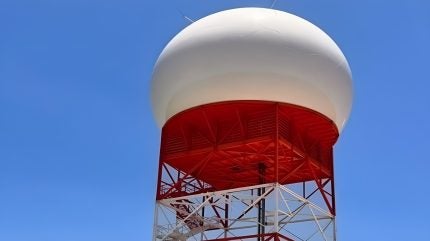
Thales company Omnisys has secured a contract from the Commission for the Implementation of the Brazilian Airspace Control System (CISCEA) for the modernisation of nine primary and secondary air traffic control (ATC) radar systems in Brazil.
CISCEA is part of the Brazilian Air Force Airspace Control Department (DECEA), and is responsible for modernising and managing Brazil’s air navigation infrastructure.
This contract involves the installation of a new radar station at Presidente Prudente Airport in São Paulo, marking the operation of 133 Thales air traffic control radars across Brazilian airspace.
The modernisation initiative will enhance the existing radar systems with advanced technology that allows for 3D detection of both low- and high-speed targets.
Additionally, the integration of Mode S and the ADS-B system will improve the accuracy of identifying both cooperative and non-cooperative aircraft.
The upgrades will also incorporate electronic protection features to maintain operational effectiveness in environments with electromagnetic interference, ensuring reliable surveillance capabilities.

US Tariffs are shifting - will you react or anticipate?
Don’t let policy changes catch you off guard. Stay proactive with real-time data and expert analysis.
By GlobalDataDECEA general director and Air Lieutenant Brigadier Maurício Augusto Silveira de Medeiros said: “This initiative represents a strategic step in renewing Brazil’s radar network, ensuring greater operational reliability and alignment with current air traffic control demands.
“DECEA is proud of the significant operational advancements and efficiency level achieved at the Brazilian airspace control system, recognised as a worldwide reference.”
The new radar system, which has been certified by the Brazilian Ministry of Defence as a Strategic Defence Product (PED), is manufactured at Omnisys’ facility near São Paulo.
The installation at Presidente Prudente Airport includes a co-mounted Primary TRAC NG and Secondary RSM NG surveillance radar, with provisions for future identification, friend or foe (IFF) capabilities.
This development is part of a larger strategy aimed at enhancing the security of Brazilian airspace.
The newly installed radar station is expected to improve air traffic surveillance, thereby increasing safety and operational efficiency at Presidente Prudente Airport, which ranks as the third busiest airport in the interior of São Paulo.
Thales Surface Radars vice president Eric HUBER said: “With 133 radars for Air Traffic Control and Management produced and delivered in Brazil, Thales confirms its commitment to deliver the best in technology, contributing to the security of Brazilian airspace.”
In December 2024, Thales signed a contract with Dutch air navigation provider LVNL to supply its RSM NG digital secondary surveillance radar for Schiphol Airport in Amsterdam.



